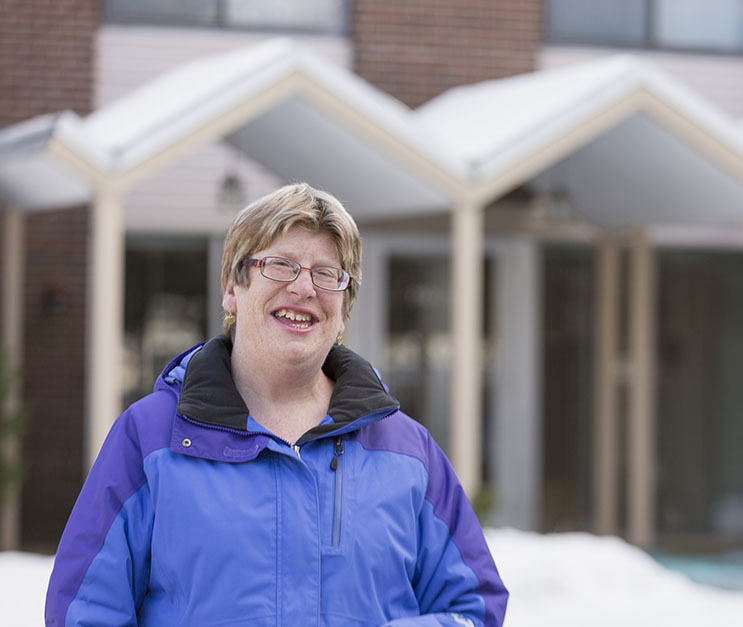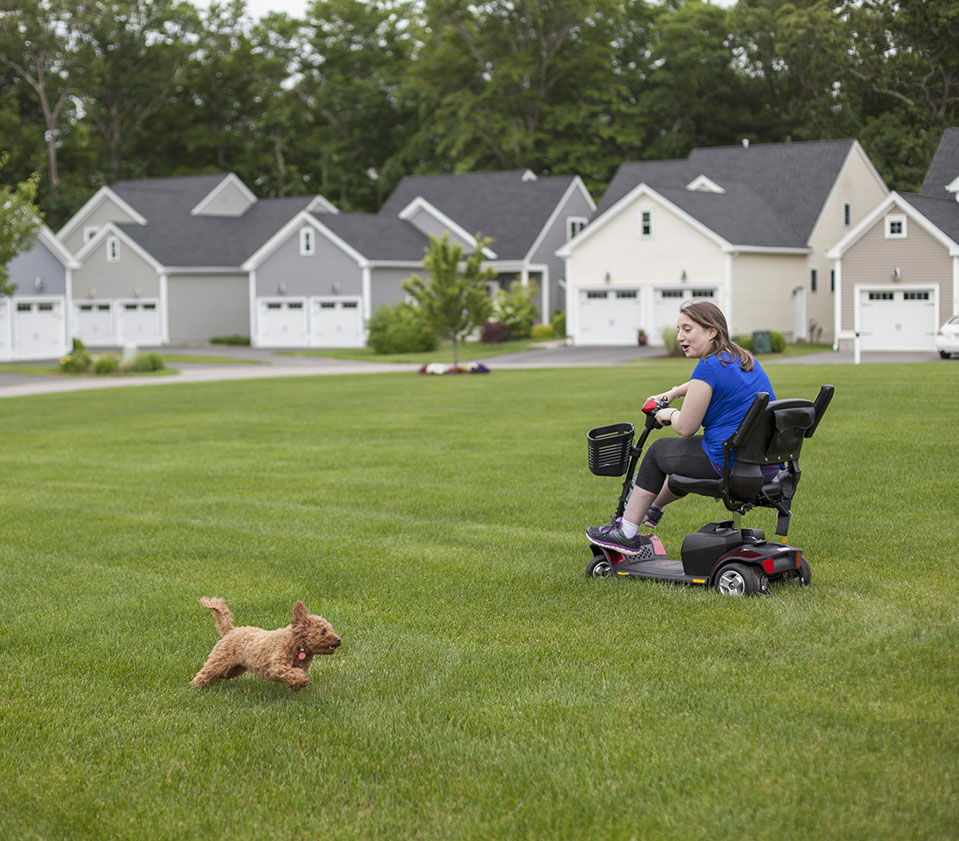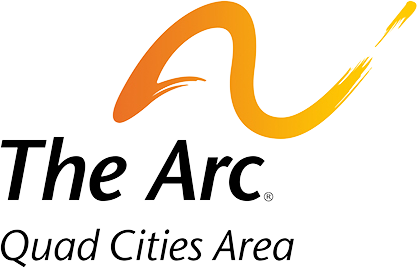Why It Matters
For people with disabilities, there are far too many barriers to housing. Without affordable, accessible housing in the community, many are at risk of institutionalization or homelessness.
Across the nation, many people with disabilities are experiencing an affordability crisis. Approximately 4.8 million non-institutionalized people with disabilities who rely on federal monthly Supplemental Security Income (SSI) have incomes averaging only about $9,156 per year – low enough to be priced out of every rental housing market in the nation.
Many people with I/DD live with aging caregivers (age 60 and older). As this generation of caregivers continues to age, many of their adult children with I/DD may be at risk of institutionalization or homelessness.
An accessible home offers specific features or technologies such as lowered kitchen counters and sinks, widened doorways, and wheel-in showers. For people who use mobility devices, finding housing with even basic accessibility features (e.g. an entrance with no steps) can be daunting, if not entirely impossible or unaffordable.
The availability of affordable, accessible housing remains far less than the need, leaving far too many people with I/DD institutionalized, homeless, or in “worst case” housing (paying too much in rent to afford other basics or living in severely inadequate conditions).
The Fair Housing Act prohibits housing discrimination on the basis of race, color, religion, sex, disability, familial status, and national origin. Complaints by people with disabilities often make up the majority of discrimination complaints received by HUD’s Fair Housing Enforcement Office and other fair housing agencies.
What The Arc Is Doing
People with I/DD have the right to live in accessible, affordable housing in the community. The Arc advocates to protect and improve federal housing laws and regulations and to ensure adequate funding for federal housing programs that assist people with I/DD and their families.
Our Public Policy Goals
The Arc’s Public Policy Goals include many recommendations for improving access to affordable housing in the community.
Our Coalition Work
The CCD Housing Task Force, which The Arc co-chairs, works with Congress and the Department of Housing and Urban Development (HUD) to increase access to decent, safe, and affordable housing for all people with disabilities and to protect the rights guaranteed under the Fair Housing Act. The Arc is also a member of the Campaign for Housing and Community Development Funding (CHCDF) and a partner in Opportunity Starts at Home.
Key Federal Housing Initiatives
Key programs at the U.S. Department of Housing and Urban Development (HUD) that seek to increase affordable housing for people with disabilities include:
Section 811 Supportive Housing for Persons with Disabilities Program. Section 811 is the only HUD program dedicated to producing affordable, accessible housing in the community for non-elderly, very low-income people with significant disabilities.
Section 8 Housing Choice Vouchers. HUD’s Section 8 Housing Choice Voucher program helps very low-income families, the elderly, and people with disabilities afford rental housing in the private market. About 1 in 3 households using Section 8 vouchers are headed by a non-elderly (under age 62) person with a disability.
National Housing Trust Fund. The National Housing Trust Fund (NHTF) is a new, dedicated fund that provides grants to states to build, preserve, and rehabilitate housing for people with the lowest incomes.
How You Can Help
There are many ways to advocate with and support The Arc’s grassroots movement.












